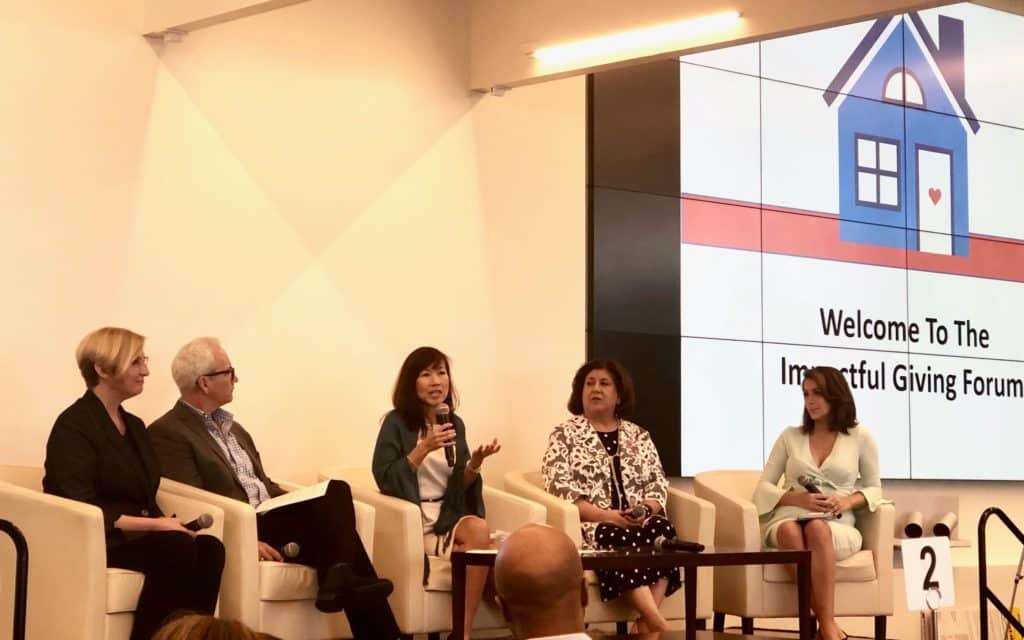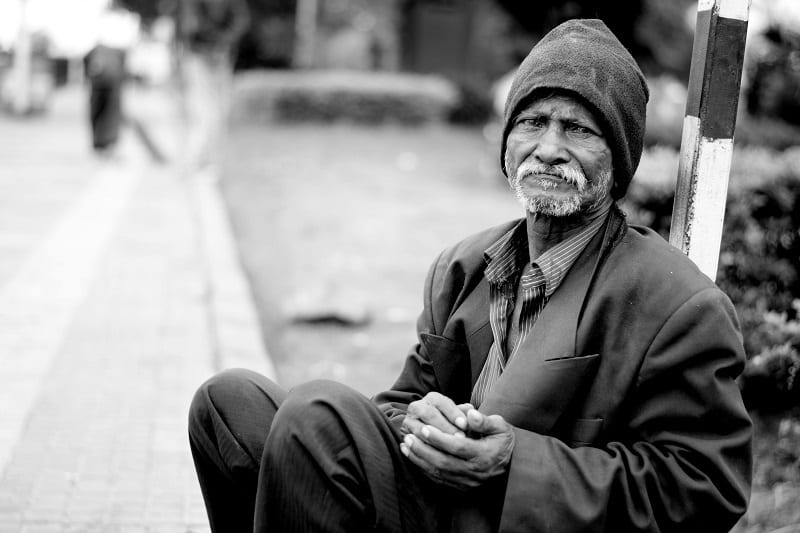by Vicki Powers
Do you make eye contact with the homeless who stand near your car window? It might make you feel uncomfortable if you’re not offering assistance, but Rev. Michael Gott, Unity Church of Houston, suggests it as a better option to donating money.
“Make eye contact and acknowledge them,” Gott states. “If we turn away when we see the homeless at our car window, we won’t feel the compassion, which will move us. But we have to delay the help.”
 Gott was one of several panelists at the Impactful Giving Forum: For the Faith-Based Community, sponsored by Coalition for the Homeless earlier this year. The conversation focused on how churches and the Houston community can come together to support the homeless and not work in silos that actually cause more harm than good.
Gott was one of several panelists at the Impactful Giving Forum: For the Faith-Based Community, sponsored by Coalition for the Homeless earlier this year. The conversation focused on how churches and the Houston community can come together to support the homeless and not work in silos that actually cause more harm than good.
“When people and groups conduct feedings without coordinating with a partner agency of The Way Home, people experiencing homelessness stop engaging with our outreach teams,” says Sara Martinez, director of development & communications with the Coalition for the Homeless. Serving a meal with a direct service agency like The Beacon, for example, translates to so much more. The goal is to get people connected with services that can end their homelessness, not just manage it.
People want to help but don’t know how, according to Cynthia Alvarado, operations manager, Midtown Management District, another panelist on the forum. “You have no idea how isolating it is to receive a tent as a temporary shelter. And within 24 hours, tents and mattresses are infested with fleas.”
Alvarado states that Midtown Management District spends $1.8 million a year to keep the district clean and safe. Bringing blankets and mattresses for the homeless just adds another problem to the homeless issue. It becomes a real health emergency on clean-up days.
Eva Thibaudeau, chief program officer, Coalition for the Homeless, understands the challenge of how best to help.
“We each have different gifts and passion,” she states. “When we experience those who are homeless, we feel hopeless. We often think the best thing is to hand money out the window.”
Thibaudeau suggests instead that these people need a community that embraces them and helps them learn how to integrate back in to the community.
The Way Home aligns more than 100 Houston partners that communicate and collaborate to meet the needs of Houston’s homeless, including Houston Recovery Center. These partners provide supportive services (employment, mental health, health care) after people first get into permanent housing. Welcome Home Baskets are another critical aspect of the transition that can make their housing feel more like a home. Churches and individuals can donate to The Welcome Home fund that supplies linens, cleaning supplies, kitchen set-up and more.
Delaying the help for the homeless can include a number of options:
- donate to The Welcome Home fund
- volunteer in a certified kitchen such as The Beacon, or
- provide a Help Card or Houston Resource Guide that connects homeless with real change.
But as a first step, look them in the eye.
